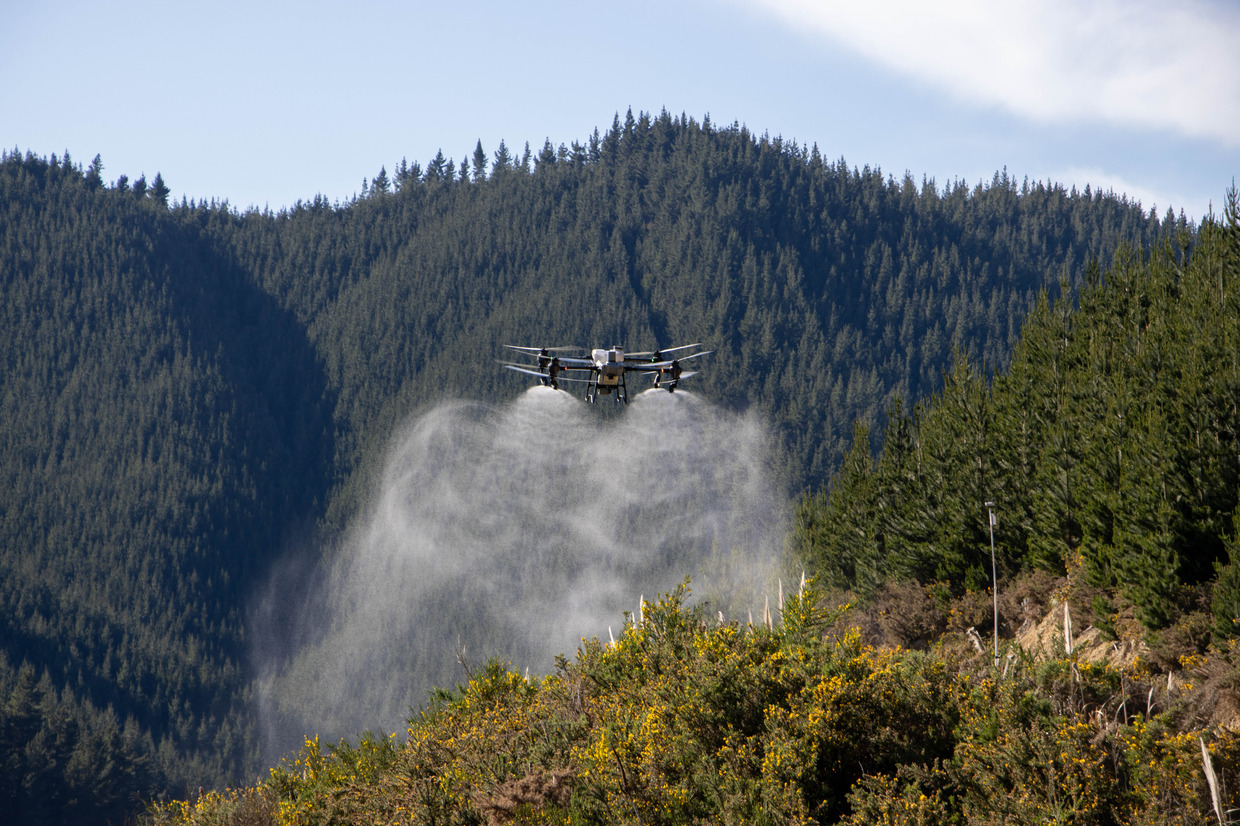Are you a landowner, farmer, or conservationist struggling to maintain a healthy, biodiverse landscape? How about considering gorse or weed spraying drone services? Let us discuss this in detail!
Invasive plants such as gorse and wilding pine alter ecosystems, raise fire risk, and inhibit farmland productivity. Traditional control methods are labour-intensive, costly, and nearly impossible to implement in rugged or remote areas. Drone services for weed spraying are becoming a core part of integrated land management, offering an efficient, targeted, and environmentally conscious set of solutions against invasive species. Remote-controlled drones are indispensable for land future-proofing and biodiversity conservation, from precise gorse spraying to large-scale wilding pine control.
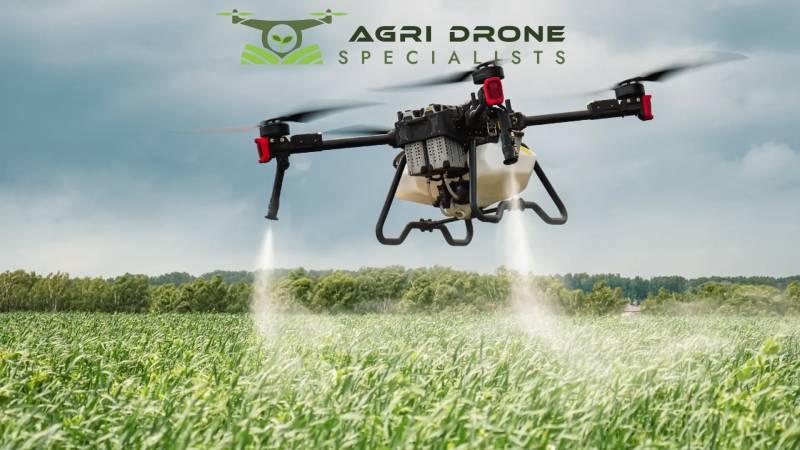
Biodiversity Threat by Invasive Plants
These invasive species are plants not native to any particular area and can spread, often to their detriment. Wilding pines and gorse are among the two culprits in New Zealand and not so far away in Australia.
Wilding Pines: Silent Forest Invaders
Wilding pines spread unlike any other and set up dense monocultures that stifle the indigenous vegetation. In that they affect grassland ecosystems, lower water output, and threaten native biodiversity, wilding pines hold notoriety. Once established, wilding pines are complex to remove, especially in mountainous or inaccessible regions.
Gorse: The Fire-Prone Foe
Introduced as a hedging shrub, gorse has become arguably the most invasive shrub in many rural landscapes. It spreads quickly, thrives on poor soils, and makes impenetrable thickets. Also, due to its highly flammable nature, it poses the threat of wildfire as an environmental hazard to human safety. The long-term ecological damage they cause is significant. Ensuring the maintenance of native ecosystems with sustainable management is vital.
Why Traditional Control Methods Fall Short
Wilding pines and gorse get removed through physical removal or chemical spray from the ground and aerial application via helicopter. These methods, however, even though possibly effective, come with some downsides:
• This involves very high manual labour costs and requires lots of labour.
• They cannot reach far-away places or areas with steep elevations.
• There is a chance of overspray; some spray can damage native vegetation.
• With high fuel usage, they will release more carbon emissions.
These traditional strategies are often reactive. Treatment will be lagging after infestation, subject to severe damage already.
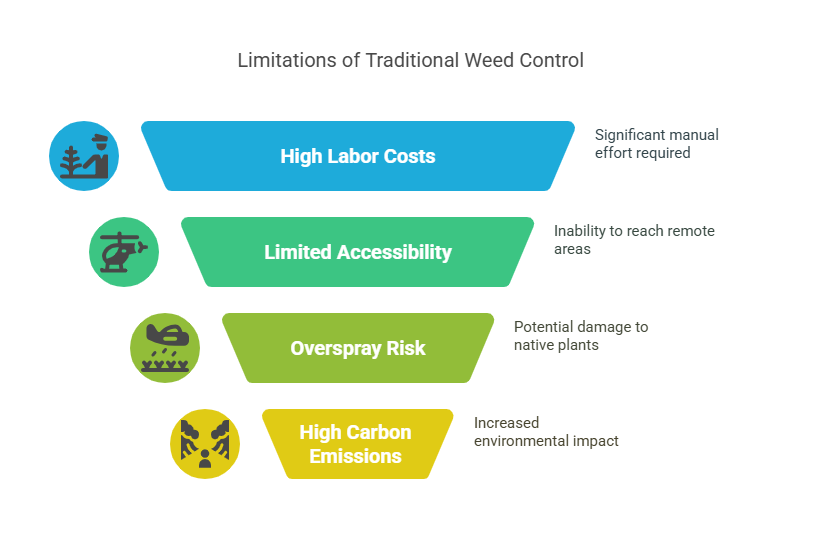
Why Drones: The Best Way for Land Management
With drone technology, we get a powerful and promising alternative. Drones fitted with high-precision GPS, multispectral sensors, and customized spraying equipment are a phenomenon in the invasion species management domain. Through drone services for weed spraying, land managers spray herbicide with unparalleled precision, hence limiting the disturbance to other areas.
Main Advantages of Aerial Weed Control Using Drones
1. Precision Targeting
Unlike blanket spraying from helicopters or broad applications from the ground, drones are programmed to spray specific plants or patches. Using artificial intelligence mapping or visual identification systems, drones ensure chemical usage only where needed, making it perfect for Gorse Spraying in an area where sensitive native flora might be nearby.
2. Tough to Reach Terrain
Drones do very well in places that are hard on foot or downright hazardous. Steep slopes, ravines, or rocky landscapes that are difficult for human crews make the best battlefield for drones to help control wilding pine in alpine or hill country regions.
3. Decreased Chemical Inputs
Drone spraying works by applying herbicide only where needed, minimizing chemical waste and the potential for environmental exposure. It adds value to the land, the water, and wildlife— vital for maintaining biodiversity.
4. Faster and Cheaper
Drones can do the job faster than traditional follow-ups and have far more coverage with fewer personnel. It can be effective and efficient in large stations, farms, or conservation areas treated for widespread infestation.
5. Digital Mapping and Monitoring
You can use aerial data to map out the affected areas before spraying and after. A record for monitoring plant health, regrowth after the first mission, and success of treatment—continuing to provide information for long-term land management plans.
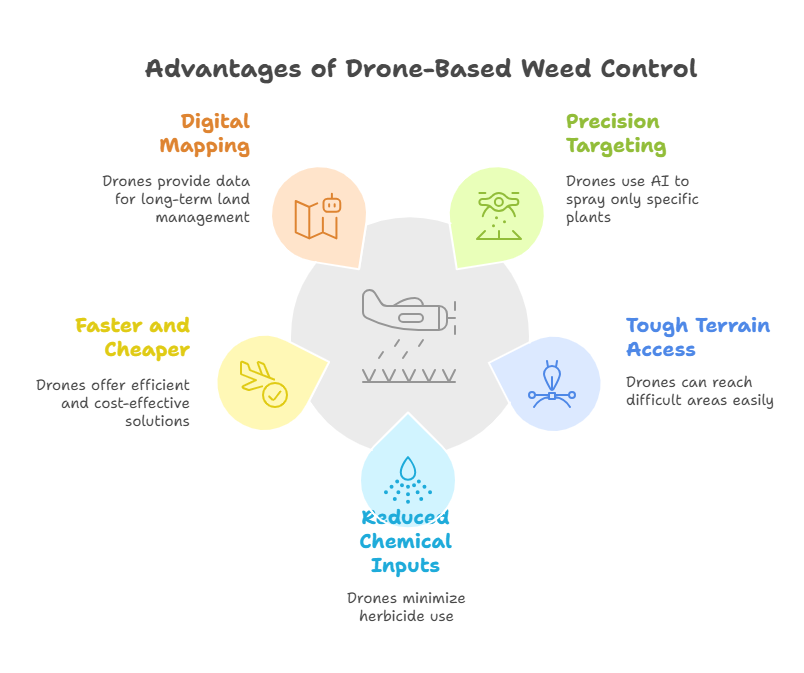
Understanding the ecological impact of invasive plants
Invasive plants- wilding pines and gorse, do not compete effectively with native plants. However, they alter the entire ecosystem even though they are not native; in a way, they create a monoculture.
These species create monocultures, reducing plant diversity and the variety of insects, birds, and animals that depend on native habitats.
For example, wild pines consume large quantities of water, impacting stream flow and water availability in catchment areas. Their dense growth shades out low-lying vegetation and disrupts natural fire cycles, often making fires more intense and damaging when they occur.
Gorse produces dense, spiny thickets that impede native shrub and seedling establishment. Its spiny plant structure makes accessibility difficult; animals and people have difficulty moving within it. Because gorse fixes nitrogen, it can also create an atypical soil profile with more nitrogen than expected, and the native flora that once grew cannot re-establish itself even under ideal conditions.
Numerous ecological changes continue to cause rippling effects; animals lose nesting sites, and pollinators lose forage sites, decreasing overall ecosystem resiliency. The ecosystem has shifted to an area with reduced recovery capacity under environmental stress, becoming chemically altered and possibly disturbed by human activity, leading to degradation from drought, pests, and storms.
Employing drone technology for weeds or gorse spraying and wilding pine control helps land managers eliminate invasive plant species and safeguard the intricate ecosystem that relies on indigenous flora. The method is essential for creating sustainable, agriculturally productive landscapes.
Supporting Native Biodiversity
Healthy native ecosystems provide ecological values, from carbon sequestration and water purification to pollination and soil health. By removing invasive plants such as gorse and wilding pine, we allow native species to flourish.
Drones leverage the following benefits to further those initiatives
• Temporarily or spatially avoiding damage to non-target plants,
• Preventing soil disturbance,
• Reducing the environmental footprint of weed control,
•Allowing data-driven biodiversity-management approaches. Whether on farmland, conservation reserves, or private bush blocks, drone-based weed control helps maintain ecological integrity.
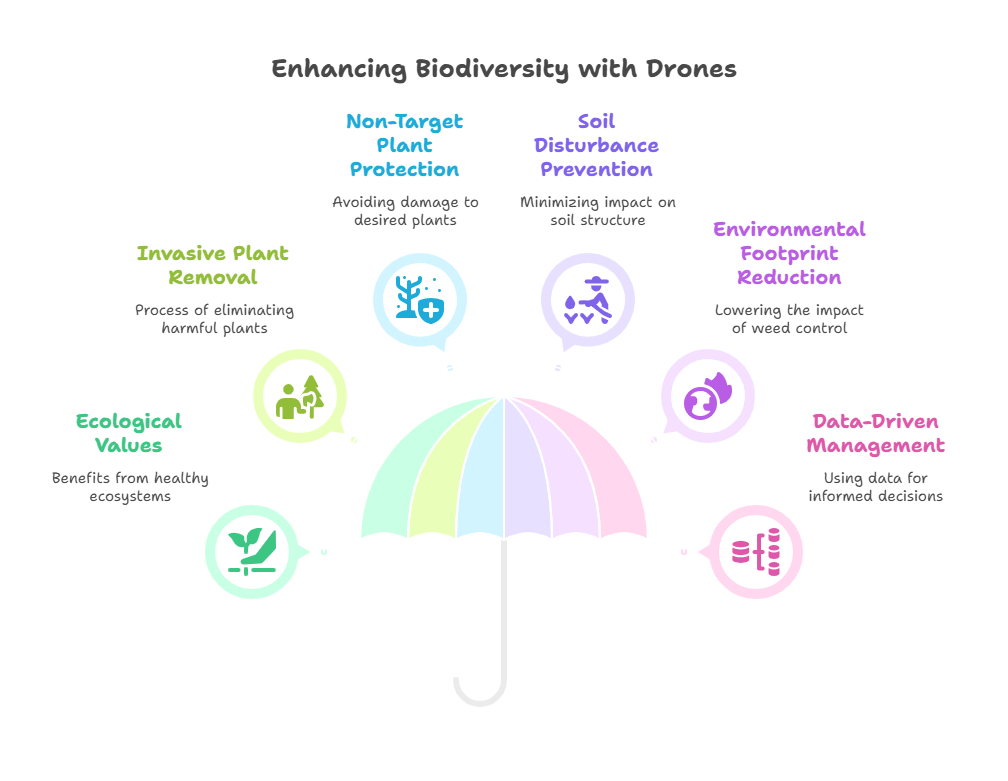
Building a Resilient Future
As climate change, urbanization, or land degradation increasingly affect rural and natural areas, land management has become a necessity rather than an option. Drone services for weed spraying offer a scalable, sustainable, and effective aerial solution to protect biodiversity while managing land for agricultural and recreational purposes.
The ability to provide rapid responses to new infestations and targeted interventions supports landowners and managers in having modern conservation tools at their disposal. Whether facing thick gorse patches or undertaking a long-term wilding pine control program, drones represent the future of land custodianship.
Conclusion: Conservation in the Technological Age
We’re entering a new era of advanced weed spraying drone Services, which enable landowners to use cutting-edge technology that is more efficient while also being more considerate of the ecosystems they are attempting to protect. Whether it is to tame dense gorse or wild pine, drone spraying services are reshaping weed management and conservation.
Drone services are vital for land management practices to restore the balance to native landscapes, promote biodiversity, and create a healthier, more resilient environment for future generations.
At Agri Drone Specialists, we are passionate about empowering landowners to manage their lands better using world-leading drones. We offer gorse spraying, wilding pine control, and weed spraying drone services to manage your land.
Our team guarantees every treatment is effective, sustainable, and aligned with your land care goals. Whether you are a farmer, forest manager, or conservation group, we have the capabilities and experience to enhance your plans for healthier and more biodiverse land.
Contact Agri Drone Specialists to future-proof your land with effective drone spraying services.

